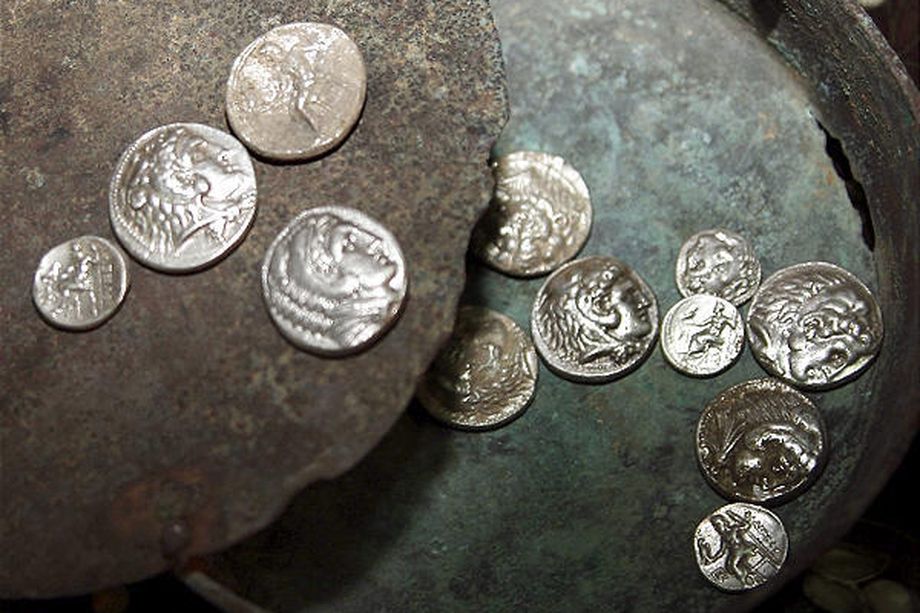Díky. 
22.2.2010 Coins of Alexander the Great in a bronze chest
Categories: Calendar , Nálezy nejenom s detektorem na blízkém východě

The great discovery was announced eleven years ago by archaeologists working in the ancient city of Aleppo. One of the locals found 250 coins from the time of Alexander the Great while digging the foundations for his house.
The coins were stored in a chest. The discovery was reported by Yousef Kanjo, who was the head of the local archaeological team. He said that the finder behaved honestly and handed over the coins to the relevant authorities. He also handed over the bronze chest in which the treasure was found.
Experts found that the coins date back to the Hellenistic period. That is, from the 4th to the 1st century BC, when Alexander the Great managed to spread Greek culture to the Middle East and beyond. The chest contained two types of coins, namely 137 tetradrachms and 115 drachm coins.
"On one side of the tetradrachm is Alexander the Great himself. On the other is the Greek god Zeus seated on a throne, with an eagle perched on his extended arm. On some coins the inscription King Alexander is stamped in Greek. On others, simply Alexander or King Philip. Such coins probably refer to Alexander's father, Philip II. Alexander of Macedon," Kanjo explained.
He also said at the time that this discovery is mercifully extraordinary and will become part of a collection of archaeological treasures dating back to the Hellenistic period.
Vase with human remains
King Alexander the Great's name was also in the media in the middle of last year, when Greek earthmoving workerswork in the north of the country discovered a large ancient copper vase containing human remains and a valuable gold wreath. The discovery was made in the ruins of the ancient city of Aigai, which was the first city of historic Macedonia. It lies about 500 kilometres north of Athens and was the site of the assassination of Alexander the Great's father, King Philip II. He is believed to have been buried there.
The head of the excavations, Chrysula Saatsoglu-Paliadeli, said at the time that the bones in the vase were not the work of grave robbers who intended to return later to retrieve the vase. In fact, inside was another cylindrical container of gold with a lid, which just contained human bones and a gold wreath. "The remains probably belong to a person who had a high status in society at the time," the archaeologist noted.
The vase was buried near the theatre where Philip II was killed. Experts were surprised by the remains in the vase. High-ranking people were exclusively buried in the royal burial ground.
Sources: www.deseret.com, www.cbsnews.com, www.tyden.cz
The article is included in categories:







